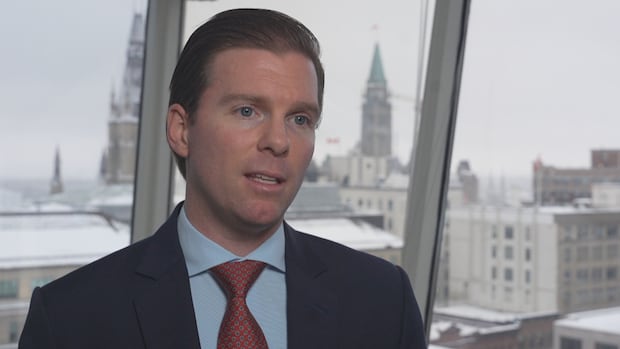[
The head of an organization representing automakers said he’s “cautiously optimistic” after meeting with Prime Minister Mark Carney to urge him to repeal the electric vehicle sales mandate.
Canadian Vehicle Manufacturers’ Association CEO Brian Kingston joined the CEOs of Ford Canada, Stellantis Canada and GM Canada in a meeting with the prime minister on Wednesday in Ottawa.
Along with discussing the impact of U.S. tariffs — the primary focus of the meeting — the automakers told Carney there’s no way the industry can meet the targets set out in the EV mandate.
The industry has long argued the mandate is unnecessary since Canada already has other policies to meet its emissions-reduction targets.
“Why would you put an EV mandate on top of your existing [greenhouse gas] regulations? It makes absolutely no sense,” Kingston said.
“Now, what’s changed since it was designed and came into force is that we’ve had this collapse in EV sales.”
The EV sales mandate requires 20 per cent of all new light-duty vehicles sold in Canada to be zero-emission as of next year. The target rises annually to 100 per cent by 2035.

The most recent data from Statistics Canada shows EVs accounted for 7.53 per cent of all new vehicles sold in April.
Even when aided by the popular Incentives for Zero-Emission Vehicles program — iZEV — which offered $5,000 off the cost of a new electric vehicle, EV sales peaked at 18.29 per cent in December 2024. The iZEV rebate program was suspended in January after the funding ran out.
Sales dipped to 11.95 per cent that month, then to 6.8 per cent in February and 6.53 per cent in March, before climbing slightly in April.
“If we are going to hit the 2026 mandated target of 20 per cent EV sales, you would have to grow ZEV sales by 180,000 units,” Kingston said.
“There is simply no way that that can occur on such a short timeline, given all of the current market forces at play.”
While the government has indicated it plans to bring back some form of consumer rebate for electric vehicles, Kingston said making such a promise without a firm timeline would undermine EV sales even further.
In May, after meeting with General Motors management, Industry Minister Mélanie Joly told reporters the government was looking at bringing back “support programs” for EVs. Last month, Environment Minister Julie Dabrusin told The Canadian Press that Ottawa is working on bringing back a rebate program specifically.
The Liberal Party’s election platform promised to look at ways to “reintroduce a purchase incentive worth up to $5,000.”
“Comments from ministers in the public suggesting that an EV incentive is coming back are extremely damaging,” Kingston said.
“It’s a huge problem. If the government is going to bring it back, they’ve got to be clear about that with the plan and the timeline. And it has to be quick because if you tell people it’s going to be in three months, then no one will purchase an EV for the next three months.”
Kingston said bringing back the rebate program — something Hyundai CEO Steve Flamand called for in a Thursday column in the Globe and Mail — wouldn’t be enough to meet the EV mandate.
“Just to give you a sense of what the cost would be if you were to try and put in place a $5,000 incentive and increase sales by an additional 180,000 vehicles to meet the 2026 target, you’d be talking about nearly a billion dollars in spending,” he said.
“That is not a sustainable policy.”
The government spent nearly $3 billion over the five-year lifespan of its EV rebates program.
